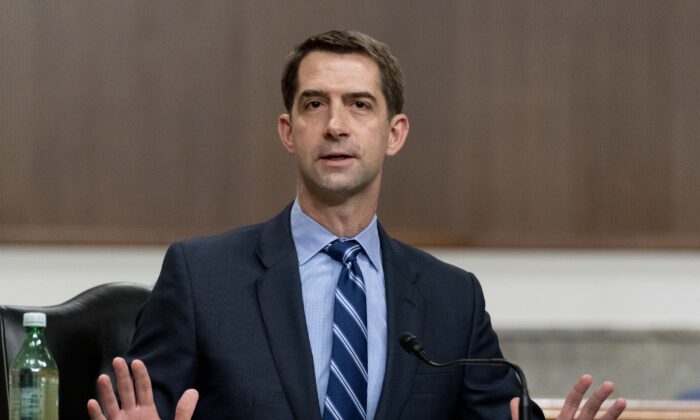The legislation introduced by three Republican senators aims to revoke China’s trade privileges with the United States and raise tariffs by 100 percent on specific Chinese imports. Senators Tom Cotton, Marco Rubio, and Josh Hawley are leading this effort to end China’s Permanent Normal Trade Relations (PNTR) status. This move is intended to protect American workers, enhance national security, and reduce China’s influence over the U.S. economy.
If enacted, the legislation would gradually double tariffs on Chinese goods crucial to U.S. national security over five years. It also grants the president authority to impose additional quotas, tariffs, and bans on certain Chinese products. Furthermore, the bill eliminates the “de minimis” treatment that allows low-value shipments from China to enter the U.S. with minimal scrutiny.
Revenue generated from these tariffs would support farmers and manufacturers affected by potential Chinese retaliation, procurement of vital munitions for Pacific conflicts, and debt reduction. The decision to grant China most-favored-nation status in 2000 paved the way for its accession to the World Trade Organization and increased access to the U.S. market, resulting in trade advantages for China.
The Coalition for a Prosperous America (CPA) supports the senators’ efforts to end PNTR with China, emphasizing the need to protect U.S. industries from further harm. CPA estimates that the surge of Chinese imports following China’s WTO accession has cost the U.S. 3.4 million manufacturing jobs since 2001. By revoking China’s most-favored-nation status, the U.S. economy could grow by 1.75 percent and create 2 million new jobs.
In a speech at the Detroit Economic Club, White House economic adviser Lael Brainard highlighted the need to safeguard the U.S. auto sector from Chinese competition. The administration aims to prevent a repeat of the negative impact on American manufacturing seen during the early 2000s due to China’s overcapacity and export strategies. Please rewrite the following sentence for me: “She decided to go to the store to buy some groceries.”
Source link





